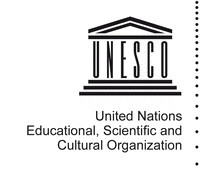I was invited to speak as international expert at the European Parliament and answer questions by the members of the European Parliament on 5th of December 2022. The two-day hearing took place in Paris, France under the leadership of Lord Earl of Dundee. Digital education was one main topic of the agenda for which I was asked to contribute. Together with colleagues from UNESCO and OECD, I was delivering answers on 17 topics that the European Parliament had provided and demanded before.
Overall, I was honoured and pleased to offer my long-term experiences and expertise to the European politicians. My key points and messages were focusing the current and future (digital) education and society:
In the future, face-to-face learning will remain very important. Distance learning will strongly decrease due to the fact that E-Learning will heavily increase thanks to more demands and opportunities, in particular through much more online learning (what is a sub-category of E-Learning).
The strengths and weaknesses of face-to-face and E-Learning (= digital learning) are the same and cannot separated: It always depends on the three main factors: learning objectives, target groups and situation. Only after their definitions the appropriate and best learning type (face-to-face or E-Learning) should be selected.
It is important to differentiate between learning (what can also happen informally without intentions, e. g. on general websites without educational purposes) and education that is always designed with specific learning objectives (and therefore, ‘informal education’ is not existing as it would be a contradiction).
We need to achieve a balance between the commons, the states and private business what is currently dominating, in particular in relation to the educational systems.
First trend: Online courses and learning materials are used more than before (but not that much as we expected from the COVID-19 lockdowns): Unfortunately, we are lacking longitudinal studies and research on online education in general.
Second trend: Open Educational Resources (OER) are a grass-root movement that is rapidly growing thanks to strong UNESCO support and the adopted UNESCO Recommendation on OER (2019), a milestone for future OER development.
Third trend: Open Education is the broad philosophy covering many dimensions and categories for innovating and improving (digital) education including OER).
To analyse the impact of COVID-19 lockdowns and to identify problems and solutions, we, a global group of 40 researchers, have collected and evaluated case studies from 13 countries. Our three research questions were related to: the situation in schools and universities, the usage and effects of Open Education to overcome lockdowns and the introduction of new instruments and tools during lockdowns.
Overall, we could identify 7 key aspects that were the same in (almost) all 13 countries. The specific results concerning the first two research questions are already published in the SSCI journals (Web of Science) Sustainability: https://doi.org/10.3390/su14031876 and IRRODL:
https://doi.org/10.19173/irrodl.v23i4.6120
My first recommendation for E-Learning is that it requires digital and pedagogical experts and competences. Before designing education and deciding on technologies, you need to address the given situation. Most important future tasks are digital and pedagogical competence building for teachers (and school leaders, pupils and parents) and infrastructure to ensure inclusion, equity and human right of education for all.
I hope that my speech and all provided answer can lead to an improvement of the digital and non-digital education in Europe for our common future and society.


